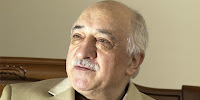Poverty is the lack of basic human needs, such as clean water, nutrition, health care, education, clothing and shelter due to the inability to afford them. This condition is also referred as the absolute poverty. According to the World Bank, 1.4 billion people in the developing world live on absolute poverty, which is usually assumed as living on less than $1.25 a day. Relative poverty, on the other hand, is the condition of having fewer resources or less income than others within a society or country, or compared to worldwide averages.
Poverty is one of the most widespread and dangerous problems faced by humanity so far. There is nothing more horrifying than the realization that as we live our happy lives here, millions of our fellow human beings live in hunger and face starvation. In order to alleviate poverty many strategies are adopted and implemented in every society with varying degrees of success depending upon the economic environment and cultural backgrounds. Poverty alleviation also involves improving the living conditions of people who are already poor. Much focus is being given to social finance and socially responsible investments, which is based on the concept of caring for other.
Poverty is not a problem by itself but it is also correlated with the other problems of the society. Having observed the poor societies, one can never show an example of a poor society with very high education level. It has always been very difficult to break the vicious circle between poverty and illiteracy. When the people is poor, then they can not afford to pay for education and when they are illiterate, then they can not find jobs or earn living for their families. Poverty is not only bad because people suffer throughout their lives but it also causes the productive human capital of the nations be wasted. Many skilled children, who have the capacity to become successful professors, economists, lawyers, doctors…etc., either stay idle or perform a lower level job because of the lack of the opportunity to pursue such careers.
 |
| Fethullah Gulen |
Of course, education is a long-term solution for poverty; it is not very urgent remedy that has to be applied. Nevertheless, as mentioned in an old saying “giving a man a fish is like feeding him for a day; teaching a man how to fish is like feeding him for a lifetime”.
Published on fethullah-gulen.org, 06 April 2012, Friday
Related Article:

